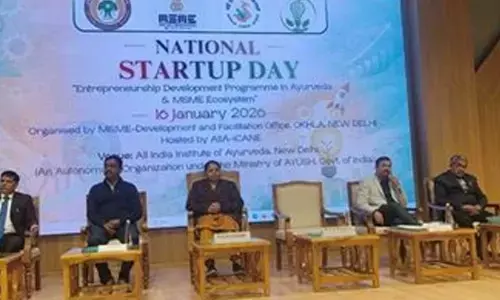Curtains on cryptocurrency

The inter-ministerial committee (IMC) set up by the central government on cryptocurrency has finally come out with its report on the critical and controversial issue.
The inter-ministerial committee (IMC) set up by the central government on cryptocurrency has finally come out with its report on the critical and controversial issue.
As widely expected, the group batted for banning of virtual currencies in the country. The Secretary of the Ministry of Electronics & Information Technology, Sebi Chairman, and an RBI deputy governor were members of the committee which was headed by the Economic Affairs Secretary.
The IMC cited volatility in prices of cryptocurrencies as one of the main reasons for curbing private virtual currencies in India. It also pointed out risks associated with these currencies.
It recommended penalties and fines on those who carry out any activities related to virtual currencies.
The committee, which was set up on November 2, 2017, studied issues related to virtual currencies for nearly one and a half year before submitting the report which has served the proverbial final blow to the India's cryptocurrency sector.
Virtual currency activity in India was as vibrant as in the markets in developed countries like the US before the Reserve Bank of India (RBI) and the central government stepped in. Even people from hinterlands and rural areas started investing in virtual currencies after Bitcoin, the first cryptocurrency, registered stratospheric rise in a matter of few years.
The 10-year-old Bitcoin was priced at $0.3 apiece in early 2011. The virtual currency crossed $1,000 mark in 2017 before hitting its lifetime high of $19,783.06 on December 17, 2017. On Tuesday, it was trading at $10,034 apiece.
Many virtual currencies flooded the market post the unprecedented success of Bitcoin. As the IMC noted, there are around 2,116 cryptocurrencies in the global market now.
Apart from Bitcoin, other virtual currencies which are popular include Ethereum, Ripple and Litecoin. But Bitcoin still rules the market with total market capitalisation $275 billion and a market share of 65.2 per cent globally, followed by Ethereum ($211 apiece) whose market cap stands at $22.7 billion.
Bitcoin has unique charm which is reflected in its stratospheric price and rise. Developed with highly secured blockchain technology, Bitcoin has been programmed by an unidentified person in such a way that only 21 million coins can ever be created. So far, 17.75 million Bitcoins have been mined.
For now, India has shut doors on cryptocurrencies. But with virtual currency markets turning more vibrant in several countries including the US, with every passing day, India can't remain mute spectator.
Furthermore, reports indicate that Facebook is working on its own digital currency. If India bans private virtual currencies, then it can issue its own digital currency. In its report, the IMC also said so and maintained that government should have an open mind on the cryptocurrencies.
It also called for the effective use of distributed-ledger technology (DLT) which is central to the security of virtual currencies. According to it, the DLT-based systems can be used by banks and other financial institutions for processes such as loan-issuance tracking, collateral management and fraud detection.
It's time India launches its own official digital currency so that it can be a part of evolving cryptocurrency market. That way, it can again open doors for private virtual currencies when the time is ripe.

















